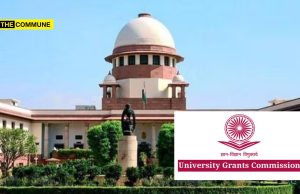
“Many scientists believe that by 2035 or 2040- if we don’t make serious changes now- there could be serious food crisis in India,” said Sadhguru, Founder-Isha Foundation, in an interaction with the media in Bengaluru yesterday. Sadhguru and Dr. A.S. Kiran Kumar, former Head of ISRO, who is also on the Rally for Rivers (RfR) Board met with the media after the RfR Board meeting earlier in the day.
“In nearly 42% of soil in agricultural land in India, the organic content is well below half a percent,” said Sadhguru adding that for soil to produce a bountiful and healthy yield, the organic content must be between 4 and 6%. “This is a disaster which is unfolding,” Sadhguru stated. He said that at one time the Cauvery Delta farmers were considered the richest farmers in the country because they were growing four crops in a year. “Today, they are doing only one (crop),” said Sadhguru, “because for over 5 months in a year, Cauvery is not even reaching the Delta. When there is no river, where is the Delta?”
Most people are unaware of the critical nature of soil degradation and its potential for disastrous consequences. Air and water pollution get greater attention because their impact is more readily seen and felt. Sadhguru said air, water and plastic pollution are not ecological problems but “civic problems” that can be fixed with the appropriate laws and their strict enforcement. “The biggest problem is the soil,” he said because it cannot be fixed in a few years. It is estimated that if all the soil in the land degrades to less than 0.5% organic content, it could take up to 150 years to restore its health.
“Bringing back organic content in the soil needs the cooperation of the farmers. This is for the first time that the farmer is involved in ecological activity,” he said. Though Indian farmers always knew how to do organic farming, we have reversed this in the last 40 years “and caused such huge damage in 35-40 years”, Sadhguru said. There are only two sources of organic content for the soil – animal waste and trees. Farmers, who have switched to machine-based ploughing, cannot be expected to go back to tilling the land in traditional ways with cattle. Planting trees on private farmlands is the only way to enrich soil nutrients in the Cauvery river basin because the largest portion of land in the region is in farmers’ hands.
“This is not an experiment. Over 100,000 farmers have done this and it has worked wonderfully well,” Sadhguru said referring to Isha’s on-ground work to prove the tree-based farming model for more than two decades. He said farmer income has gone up by 300% to 800% while also improving organic soil content and increasing groundwater tables.
He spoke about the abysmal nutritional value in chemically grown crop which is leading to community ill health. Sadhguru said that for the body to be well, the soil must be healthy.
Dr. A.S. Kiran Kumar spoke about the dangers of excessive use of chemical-based fertilizers and highlighted the need to reverse the trend urgently. Referring to Cauvery Calling, he said “If this program succeeds, it is going to become a model for the entire world.”
The Cauvery Calling team is unrolling a massive farmer outreach initiative in 57 talukas of 9 Cauvery river basin districts with the objective of popularizing tree-based farming. The outreach is expected to touch 1785 gram panchayats, home to 24 lakh farmers. 890 ‘Mara Mitras’ have been appointed in every two grama panchayat in these talukas and will enrol farmers into the tree-based farming model. They will generate demand for saplings and collect data with state-of-the-art technology to ensure accuracy and relevance. Data will include farmer details, farmholding details, sapling species preferred by farmer, location where saplings will be planted and other relevant data.
The multi-stakeholder Cauvery Calling mission is the world’s largest farmer-driven ecological movement.
Click here to subscribe to The Commune on Telegram and get the best stories of the day delivered to you personally.




